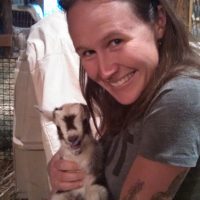I remember when the term “survivor” started to gain momentum.
When things started shifting on a societal level to view victims of domestic violence and assault as human beings who had survived a traumatic event, as opposed to this image of the beaten woman struggling to move on. I remember when people were just starting to understand that it’s more than “you can just leave,” “your husband can’t rape you,” or “but he never actually hit you.”
Finally, the concept of healing started to take real form. And we started seeing women and men, who previously were simply “victims” of violence, started to identify with the term “survivor.” And it has been beautiful. Putting the power back into the hands of survivors and encouraging these stories to be told to help educate and support others.
I personally found a tremendous amount of support in this term. It encouraged me to look at myself a little differently, with more regard and strength. I found community amongst other hurt, but incredibly strong individuals. I listened to stories more horrific than my own that were bravely told into microphones in front of hundreds of people. I saw how resilient we all really are.
Time went by, and I continued working deeply on my own healing. I volunteered with women’s groups and attended women’s marches. I learned how to forgive, I found my path, and I discovered happiness. I dedicated my life to healing, growth, and love.
One day, I was sitting in my favorite coffee shop, and I was reading an article about survivors of violence, written by my local domestic violence organization that I volunteer with, and something felt weird inside of me. The term “survivor” felt like it no longer applied. It had been a part of my identity for so long, and for some reason, in that moment, it felt so foreign. I remember sitting back in my chair, like I was having an identity crisis at that moment.
I thought about this concept of moving through stages of healing—from victim to survivor. Only when I started recognizing and breaking up my own self-destructive cycles was I able to make that transition. When I stopped blaming others and started taking responsibility for myself. When I stopped feeling sorry for myself. When I really began to process my past and face my own demons instead of running away. It didn’t mean my depression went away; it didn’t mean I didn’t slip back into self-destructive tendencies at times; it didn’t mean I didn’t mourn or grieve my past; and it certainly didn’t mean that I was suddenly happy or had moved on.
But it did mean that I was trying. That I was starting to process. That I was working at it.
The “survivor” path is interesting. We begin the process of integrating our traumas into our everyday life. We pull these experiences into our being; our identity. We absorb them. We claim them and give them words, stories, and life. We begin to see ourselves as strong, resilient, tenacious. We have survived that which should have been unsurvivable. For me, that stage meant opening up.
I leaned on friends for support and wine and crying sessions and ice cream. And something incredible happened: I found that most of the women I knew had similar stories. We commiserated together. We cried together. We screamed together. We laughed together.
Then, that day in the coffee shop, that term didn’t fit anymore. I was nearly a solid decade into my healing journey, and I found myself in a different stage. But what was it called? I googled, I searched…what is the next stage?
I found one term called “surthriver” which didn’t speak to me at all. It literally made me cringe. I felt a bit lost. I closed my eyes. I reached into my soul to see if it had any advice. I remember saying the words quietly out loud to myself, “It feels like the next stage is just…me.”
I am simply myself now. I don’t believe that I am completely “healed” or “recovered,” but I have processed through a lot. I’ve done a lot of writing, a lot of talking, and a lot of forgiving. It has taken me a decade of living in “survivor” land to figure out who I was (after a full decade in “victim” land, mind you).
My triggers are mostly gone or, at least, extremely subdued—only occasionally, I experience a nightmare, and my depression is all but gone. I am living a life that fulfills me. I know how to properly handle the traumas that are still trapped in my cells when they resurface. Even they are mostly moving out by now.
I reflect back on the last 10 years and try to pinpoint what worked to heal me. When I dig deep, I find a billion things and nothing at the same time. I both know and don’t know.
My best advice to you is to reclaim yourself. Forgive yourself. Work to heal as if your life depends on it.
Because it does.
~







Read 4 comments and reply